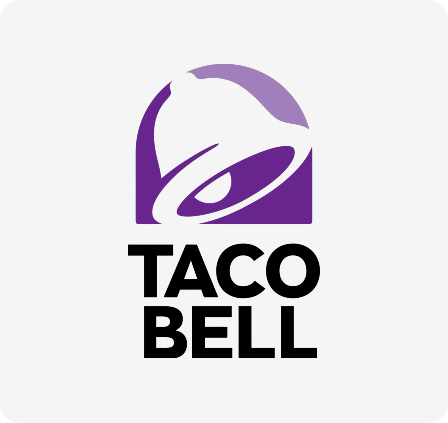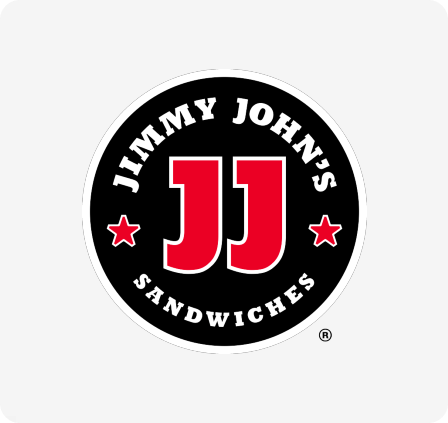CFO SERVICES
Restaurant Financial Services: Budgeting, Forecasting and Strategy
Gain control of your restaurants’ financial future with CFO services designed to bring clarity, stability, and strategy to your operation.
CFO Services for Restaurant Growth
Gain control of your finances with hands-on guidance, forecasting, and planning from a team that understands complex financial landscapes in restaurant operations.

Strategic Dashboard
View all important financial metrics in one place in a customizable dashboard—complete with custom permissions by team member.

Customized Business Reporting
Go deep into your restaurant’s financial data to reveal issues and opportunities in real-time, which can directly influence your restaurant's financial success.

Dedicated Analytics Team
Your dedicated, expert team is on call to provide custom financial reports and guide you through important insights.

Boost your ROI with a trusted team
Our team brings structure, insight, and experience to help you build a finance function that scales with your restaurant business through effective cost management.
Put the right financial processes in place to grow
Our Business Intelligence service helps pinpoint where you make money—so you can magnify it.

Signs You Need More Than Just Accounting

You're behind on reporting or compliance
Maybe it's a few weeks. Maybe it's several months. Either way, the pressure is mounting—and it won’t fix itself.

Your current partner doesn't understand the restaurant business
Talk to our experts about your current setup and challenges. We’ll build a custom financial plan around your business.

You're facing lender pressure and don't have reliable forecasts
Without timely numbers, you're flying blind. We make sure your insights are accurate, actionable, and on time.

You're scaling fast and need strategic guidance, not just bookkeeping
Growth brings complexity. We help you keep pace—with forecasting, cash flow models, and proactive planning.
Choose the plan that's right for you.
Our services are tailored to any business need, incorporating strategies to enhance resilience and profitability. Need something different? GSS provides thoughtful guidance to help clients navigate their financial needs and overcome various challenges.

Accounting Services
Our core accounting services provide a strong foundation for restaurant success. We include detailed financial reporting and metric analysis to help operators stay in control and make smarter decisions.
What’s included:
Financial Statements
Bank Reconciliations
Accounts Payable
Sales Tax Processing

Payroll Services
Our payroll services are designed to take the pressure off your team—covering everything from processing to compliance reporting. We ensure your restaurant meets all payroll, tax, and labor requirements with accuracy and efficiency.
What’s included:
Managed Payroll
ACA Reporting
Document Management
More

CFO Services
Take your performance up a notch with key insights to grow your business.
What’s included:
Strategic Dashboard
Customized Business Reporting
Dedicated Analytics Team
More

Bank Reconciliations for Taco Bell
A multi-store Taco Bell franchise was hitting rock bottom due to mis-managed accounting. Then a hurricane landed. Here’s how Global Shared Services navigated the financial crisis, got accounting practices back in compliance, and set the franchise on the path to stability and growth.

The GSS FTE Model
GSS's FTE model measures an employee's total workload to find the ideal number of full-time staff. This innovative approach lets franchisors develop concepts, outsource services, and streamline operations. By adopting this model, franchises can enhance growth, manage costs, and optimize operations effectively.
CFO Services is Built
for Restaurant Operators
No other accounting firm has the same deep experience in franchise and unique concept restaurant operations, making our CFO services a game changer for restaurant owners looking to enhance financial management and operational efficiency.
List of Services
-
Deep Expertise in Restaurant AccountingList Item 1
We know the restaurant industry—and how to keep your finances sharp and compliant.
-
Above-Market Service, Below-Market PricesList Item 2
Get top-tier restaurant accounting without the overhead of a traditional firm.
-
The Ability to Easily ScaleList Item 3
Our solutions grow with you, from single units to multi-location expansion.
-
Clear and Proactive CommunicationList Item 4
We keep you informed with fast responses, clear reports, and total transparency.
Why Restaurants Love GSS
You deserve accountants who put in the work to get real results. At Global Shared Services, our professionals help restaurant owners save time, improve financial clarity, and focus on what drives growth—from better operations to smarter marketing.

"With GSS, we meet our franchisor requirements on time and with accuracy."
“With GSS, we meet our franchisor requirements on time and with accuracy. The local CPA could not handle our volume. We are so happy to have made the change. GSS knows our business and our franchisor requirements.”

"With GSS, we meet our franchisor requirements on time and with accuracy."
“As we grew from 10 to 80 units, our reporting requirements grew in complexity and our volume became overwhelming to manage in-house, GSS was able to scale efficiently with us - matching the skill level needed in each step of growth.

"With GSS, we meet our franchisor requirements on time and with accuracy."
“We selected GSS because of its exceptional scalability and its ability to support advanced reporting and analysis at an unbeatable cost.”
"With GSS, we meet our franchisor requirements on time and with accuracy."
“We started with GSS because we had 300% turnover in our CFO role. We had IRS audits and a default with our lender for reporting requirements. Within four months of working with GSS, these issues were resolved, and we got back to the business of running our restaurants. We feel protected working with GSS.”
"With GSS, we meet our franchisor requirements on time and with accuracy."
“GSS’s unique background in corporate accounting allowed us to build a shared services team with GSS’s team at the center led by our senior staff. This high-powered group provides corporate services used by our multiple entities managing over 400 restaurants. We could not find an operator with GSS’s depth of talent and cost efficiencies.”

"With GSS, we meet our franchisor requirements on time and with accuracy."
“Working with GSS has been a great partnership. They keep us compliant with our franchisor and save us money.”
"With GSS, we meet our franchisor requirements on time and with accuracy."
“GSS’s take the guesswork out of the back office. They bring the best technology for restaurants and their first-rate staff are a pleasure to work with.”
"With GSS, we meet our franchisor requirements on time and with accuracy."
“GSS delivers a service we count on for running our restaurant business. They are accurate, prompt and always communication clearly.”
Tired of managing
the books yourself?
Let us handle your accounting so you can focus on growth. Discover what we can do for you.



